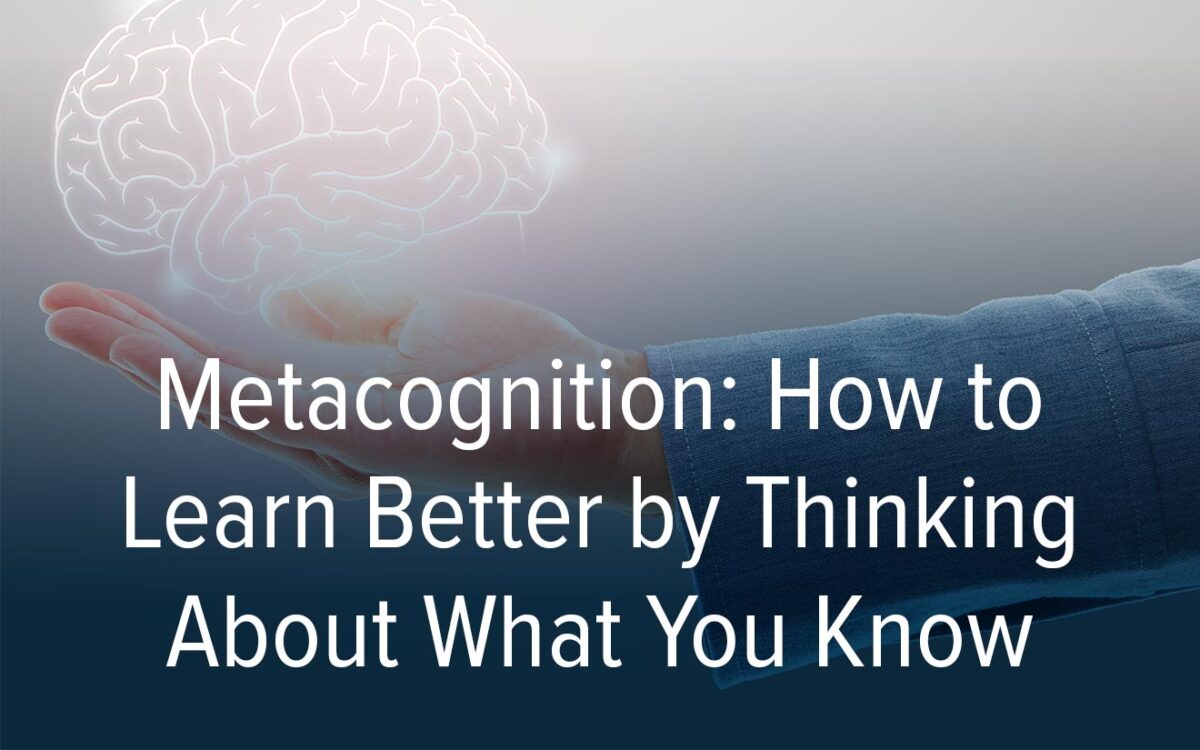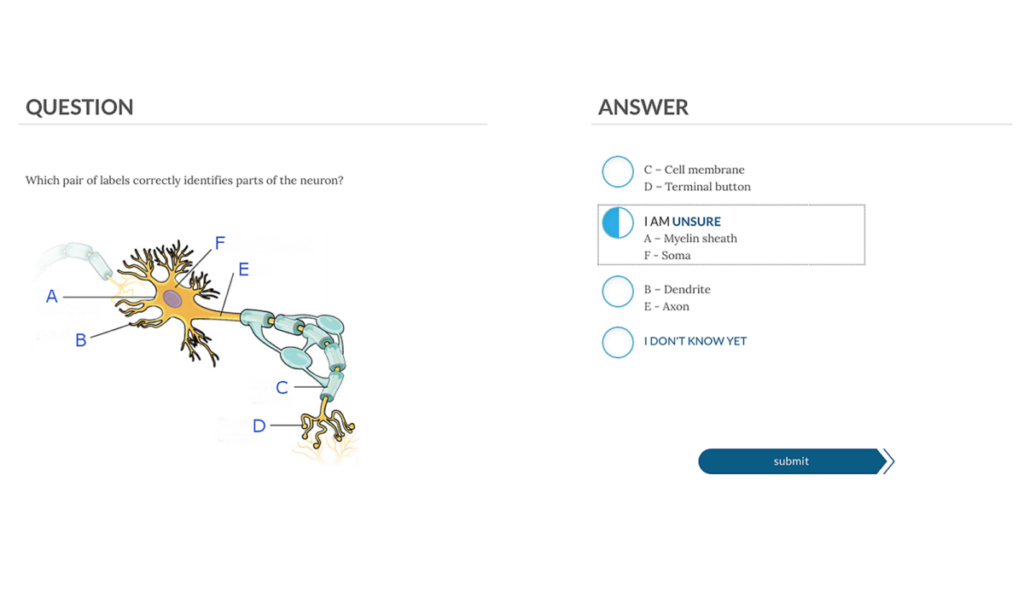
The Amplifire learning platform is built on brain science principles to foster better learning. By harnessing the power of cognitive and neuroscience discoveries, the platform helps people learn faster and retain more. Of these discoveries, researchers have identified over twenty “triggers” that facilitate better learning. One of these triggers is metacognition, which many learning experts and instructors have recognized as an indicator of high performance and academic success following learning.
Many resources tend to have varying definitions of metacognition and what metacognitive learning looks like. Like we do for everything here at Amplifire, we’ll take a science-based approach to the topic of metacognition and learning. In this article, we’ll cover:
- What is metacognition?
- Why is it helpful for learning?
- How to integrate metacognition into the learning process
What is metacognition?
People tend to separate rational thought from emotion. Sometimes, we go as far as to put emotion and rationality at odds — perpetuating the misconception that intelligence is derived from thinking and learning that is untarnished by emotion. However, the latest cognitive research indicates that emotion is a powerful influence in the process of learning and facilitating long-term retention. One of the most effective ways to ensure lasting learning is to tap into feelings of knowing.
One of the most remarkable traits that humans possess is our ability to hold knowledge about the state of our own knowledge. Metacognition is to think about what you know or evaluate how well you know something. This process stems from feelings of knowing — you either feel confident in your knowledge of a particular topic; you may feel uncertain; or you may feel that you do not know something. The process of metacognition is derived from feelings of knowing, which has been shown to stimulate faster and stronger learning.
Why metacognition improves learning and memory
The reason metacognition is so powerful when it comes to learning is because it calls forth feelings of knowing to the forefront of the learning process. How we feel about what we know is important from an evolutionary standpoint. Humans evolved successfully because of the strong correlation between confidence and subsequent behavior. If you are confident, you act. If you are uncertain, you hesitate.
The ability to assess how you feel about what you know, or make a judgement about what you know, can facilitate faster, stronger learning. Using fMRI scans of the brain, researchers at MIT visualized the neural source of this ability by directly imaging the brain. Psychologists had proposed that being able to assess your “judgements of learning” about a fact makes you a better learner.
So how does this process work? Interestingly, the researchers also discovered that judgments of learning and knowledge itself occur in two different circuits of the brain. Judgements about learning happen at the time of learning, whereas feelings of knowing occur during memory retrieval, according to John Gabrieli at the GabLab, the McGovern Institute at MIT. When we access memories, parallel processing occurs: one circuit (the parahippocampus) is working on retrieving the information, while another (ventromedial prefrontal cortex or VMPFC) is processing clues for familiarity. Researchers believe the VMPRC is responsible for the judgements of learning we experience. A strong signal indicates familiarity, whereas a weak signal indicates uncertainty.
Because these circuits are connected, an activated VMPFC creates a link to long-term memory. When metacognition is integrated in the learning process, stronger memories are created for later recall.
How to integrate metacognition into learning
Learning experts encourage instructors to integrate metacognition in their lessons. Students with strong metacognitive skills are positioned to learn more and perform better than peers who are still developing their metacognition (Wang et al., 1990).
It’s no wonder why metacognition is directly built into the Amplifire platform. Within the platform, participants answer questions that are written in a Socratic format to encourage learning. But rather than simply answering questions, learners are prompted to indicate whether they are sure, unsure, or don’t know an answer without penalty. This way, learners must make a judgement about what they know — based on their feelings of knowing — while they recall information.

Through this process, learning with Amplifire directly calls the VMPFC to report on its confidence level while the parahippocampus is busy retrieving the actual information. Amplifire users are engaged and learn rapidly because the circuit that stores memory and the circuit which predicts the memory are active and engaged. Amplifire brings Gabrieli’s judgements of learning directly into consciousness rather than leaving it to the subconscious. In some cases, learners lack sufficiently developed metacognitive skills, so this process isn’t immediately or innately accessible to all learners. With this simple evaluative answering process built in, learners can easily and directly access metacognition, thereby improving encoding, storage, and recall.
Amplifire’s metacognitive approach was put to the test at a large community college in North Carolina with an enrollment of more than 40,000 students when the online learning platform was added to the culinary arts curriculum. Every student in the course must pass the food and beverage safety certificate exam in order to begin a career in the restaurant business. The food and beverage safety exam pass rates were then compared with those from the year before. Students who used Amplifire were 18% more likely to pass the exam — and 34% less likely to fail it.
In true metacognitive fashion, learners were aware of this benefit, with 100% of them agreeing that Amplifire helped them learn and remember the material. Time and time again, the benefits of science-based learning are evident by the positive outcomes demonstrated by Amplifire learners.
From the beginning, Amplifire has relied on innovative brain science to guide its product development to create the most effective learning and training solution, perfectly tailored to the way the human brain works. Learn more about how Amplifire helps people learn better and faster by checking out a demo.







